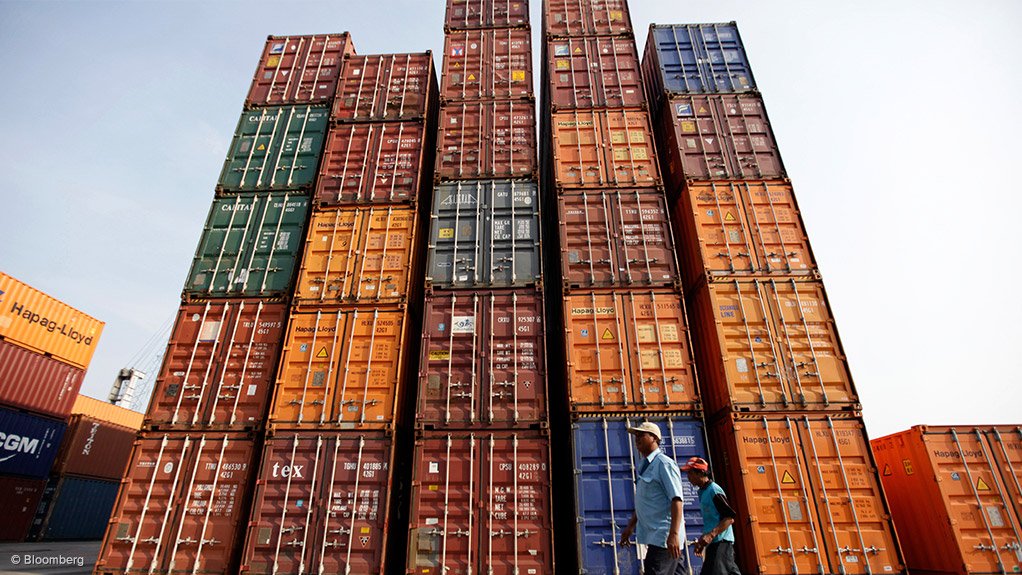AfCFTA improves Africa's trade profile, investment attractiveness
The African Continental Free Trade Area (AfCFTA) helps to improve the attractiveness of Africa for investors, as the potential markets companies can tap have become much larger.
This also places the continent in a stronger position to negotiate fair trade terms with other countries and blocs, African Union Commission (AUC) Commissioner for Trade and Industry Albert Muchanga said during a seminar on January 27.
Companies can already start to trade in goods that have been designated under the rules of origin protocols, with the finalised agreement on rules of origins expected to be tabled before the AUC in June, he added during the seminar, which was hosted by nonprofit organisation Invest in Africa.
"The rules of origin protect Africa from transshipments − imported goods that are not produced within the continent, but [whose manufacturers] want to take advantage of the larger addressable markets.
"This is done on a product-by-product basis, and rules of origin and local content requirements for products in 85% of sectors have been finalised, allowing traders to immediately benefit from trading them within Africa," he noted.
Additionally, the ongoing work of the AfCFTA secretariat to reduce and minimise tariff and nontariff barriers, which have historically contributed to fragmented markets in Africa, will also improve the prospects of investing in infrastructure and returns, and help to overcome the challenge of poor or misaligned infrastructure links between countries, said Muchanga.
"Throughout the history of independence of Africa, most investors were hesitant to invest because the markets were too small and they were not easily able to export their goods owing to the poor transportation and communications links and tariff and nontariff barriers.
"The AfCFTA removes all this and is complemented by protocols on investment, property rights, e-commerce and digital trade, besides others, and will facilitate deeper integration."
Countries will see the most benefit if national policies are aligned with the AfCFTA. There are provisions that allow bilateral trade agreements, requiring only that African countries report these and their expected impacts to other members.
The eventual aim is to have an African Customs Union with a single external tariff structure. Once this is achieved, the bloc can negotiate with one voice, he pointed out.
"Discussions with interlocutors highlight that what is at stake is whether African economies will remain fragmented or whether we can contribute to defragmenting them and create a larger market space that can attract long-term and larger-scale investment," explained Muchanga.
Also addressing delegates at the seminar, Ghana-based law firm AB & David Africa founder David Ofosu-Dorte said that 45% of the firm's clients had indicated that they were preparing to take advantage of the AfCFTA over the next five years.
"One segment of clients are positive that they can take advantage of the AfCFTA and the other segment does not know. Therefore, governments must encourage this segment and business associations to create an understanding of the opportunities, as well as to ensure that we do not leave any sector out to create the greatest social benefit and that companies take advantage of the opportunities from all sides," he advised.
Further, agricultural commodities logistics and trading multinational Export Trading Group (ETG) East Africa head of grains & oil seed trade Giles Lewis said the roll-out of the AfCFTA has huge implications for its business, which also has strong links to India.
The AfCFTA provides a standardised framework for exporters and allows easier access to outside markets, he noted, adding that infrastructure development was necessary to support the trade framework and increased trade.
He noted that transportation costs and costs linked to bureaucracy were much higher than that of large commodity trading regions such as the US and Eastern Europe.
Ofosu-Dorte also warned that competitiveness would only be achieved if input and transportation costs were lowered. One way to achieve that would be to improve access to renewable energy, which would also help to meet environmental and sustainability objectives and reduce the cost of electricity, he suggested.
In closing, Muchanga stressed the importance of the quality of products being traded.
" We are in the process of coming up with an African quality policy that the Ministers of trade and heads of State will be able to pronounce on in February. This will cover the quality standards of goods and services, and promote an environment where people are confident that the goods and services they purchase are of high quality," he said.
Comments
Announcements
What's On
Subscribe to improve your user experience...
Option 1 (equivalent of R125 a month):
Receive a weekly copy of Creamer Media's Engineering News & Mining Weekly magazine
(print copy for those in South Africa and e-magazine for those outside of South Africa)
Receive daily email newsletters
Access to full search results
Access archive of magazine back copies
Access to Projects in Progress
Access to ONE Research Report of your choice in PDF format
Option 2 (equivalent of R375 a month):
All benefits from Option 1
PLUS
Access to Creamer Media's Research Channel Africa for ALL Research Reports, in PDF format, on various industrial and mining sectors
including Electricity; Water; Energy Transition; Hydrogen; Roads, Rail and Ports; Coal; Gold; Platinum; Battery Metals; etc.
Already a subscriber?
Forgotten your password?
Receive weekly copy of Creamer Media's Engineering News & Mining Weekly magazine (print copy for those in South Africa and e-magazine for those outside of South Africa)
➕
Recieve daily email newsletters
➕
Access to full search results
➕
Access archive of magazine back copies
➕
Access to Projects in Progress
➕
Access to ONE Research Report of your choice in PDF format
RESEARCH CHANNEL AFRICA
R4500 (equivalent of R375 a month)
SUBSCRIBEAll benefits from Option 1
➕
Access to Creamer Media's Research Channel Africa for ALL Research Reports on various industrial and mining sectors, in PDF format, including on:
Electricity
➕
Water
➕
Energy Transition
➕
Hydrogen
➕
Roads, Rail and Ports
➕
Coal
➕
Gold
➕
Platinum
➕
Battery Metals
➕
etc.
Receive all benefits from Option 1 or Option 2 delivered to numerous people at your company
➕
Multiple User names and Passwords for simultaneous log-ins
➕
Intranet integration access to all in your organisation





















